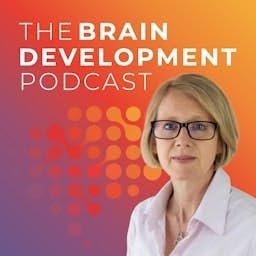Lara and Vicky discuss the critical connection between immune dysregulation and neurodevelopmental disorders such as autism, ADHD, and dyslexia. They emphasise the importance of early detection of red flags in children's health, including symptoms like cradle cap, reflux, and chronic infections, which may indicate underlying gut and immune issues. Vicky shares her personal experiences with her daughter, highlighting how these early signs can lead to significant challenges if left unaddressed. The conversation delves into the role of gut health in immune function, the impact of environmental factors, and the importance of addressing these issues to promote better outcomes for children. Lara and Vicky aim to empower parents with knowledge and strategies to support their children's development and well-being. KEY TAKEAWAYS Understanding Immune Dysregulation: Many children with diagnoses such as autism, ADHD, and dyslexia exhibit underlying immune dysregulation and signs of autoimmune activity, which can significantly impact their development and behaviour. Early Warning Signs: Symptoms like cradle cap, severe reflux, constipation, and frequent infections can serve as red flags indicating potential gut health issues and immune system problems. Addressing these early can help prevent more severe developmental challenges later on. Importance of Gut Health: A balanced gut microbiome is crucial for a healthy immune system. Issues such as dysbiosis and leaky gut can lead to chronic health conditions and neuroinflammation, which may manifest as behavioural and learning difficulties. Role of Primitive Reflexes: Primitive reflexes are essential for proper brain development and motor skills. Delays or difficulties in achieving developmental milestones, such as rolling over or crawling, can indicate underlying issues that may affect a child's overall development. BEST MOMENTS "Almost every child we've tested have, with some degree, an underlying immune dysregulation." - Lara "If your child has cradle cap, you know that there is quite a severe candida issue already from birth." - Vicky "If your child is sick, ear infections, eye infections, if you've got a child that's either never sick or constantly sick, you know either one of those is not helpful." - Vicky "The immune system is just left wide open to kind of leave that to take hold even further." - Vicky SOCIAL/IMPORTANT LINKS https://www.tiktok.com/@braindevelopmentuk https://www.instagram.com/braindevelopmentuk/ https://www.linkedin.com/in/larakelly/ www.braindevelopment.co.uk HOST BIOLara Barnes a successful woman in tech found herself managing behavioural, learning and speech difficulties with her son, she learn functional neurology and how to change the brain to correct his symptoms and build his left brain. The Building the Brain Podcast is for parents needing to understand how to help their children and show them what can be done to change little lives to allow them to shine and be their best version. GUEST BIO Vicky is mum to her remarkable autistic daughter, Rose. With a BSc in Human Biology and a deep fascination with the human body, she was originally on track to become an NHS dietitian. When Rose’s needs became more complex, everything changed. Vicky immersed herself in learning about autism, neurodevelopment, and root-cause healing, a compassionate, whole-person approach that simply made more sense. From this journey, The Happy Healthy Unicorn was born, a space grounded in both science and heart, created for families seeking real answers and hope. Rose’s transformation inspired Vicky’s mission to help others. Combining science, lived experience, and deep empathy, she now guides families on their own healing journeys, empowering them to restore balance, support development, and unlock their children’s true potential. https://thehappyhealthyunicorn.com/ https://thehappyhealthyunicorn.com/1%3A1-virtual-consultations
Show More
Show Less
 38 mins
38 mins Nov 28 202536 mins
Nov 28 202536 mins 51 mins
51 mins Nov 14 202533 mins
Nov 14 202533 mins Nov 7 20251 hr
Nov 7 20251 hr Oct 31 202529 mins
Oct 31 202529 mins 28 mins
28 mins 22 mins
22 mins

